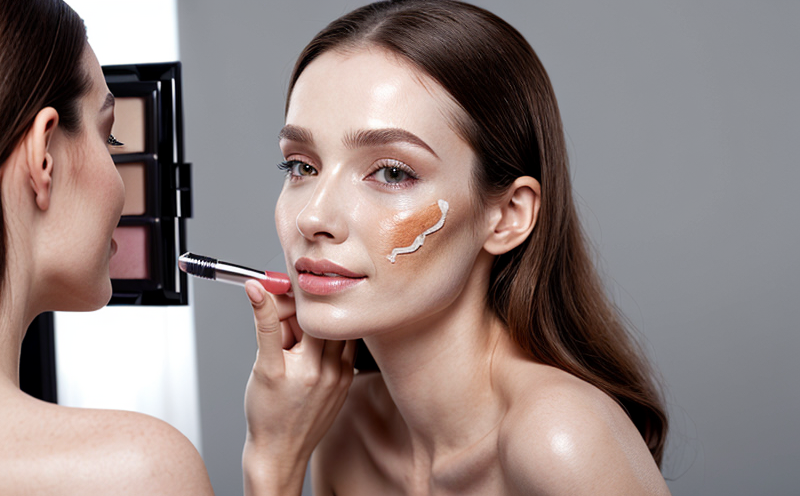Clinical Soothing Effect Testing in Sensitive Skin Care
The testing of so-called “soothing effects” on sensitive skin is a crucial step for the development and quality assurance of cosmetic products. This service ensures that products are safe, effective, and suitable for consumers with sensitive skin conditions such as eczema, dermatitis, or other inflammatory conditions. Understanding the nuances in skin response to topical treatments or formulations can significantly improve product efficacy while minimizing potential adverse reactions.
Our clinical testing process involves a series of controlled trials designed to evaluate how different ingredients or formulations interact with the skin. These tests are conducted using real-world parameters that simulate both typical and worst-case scenarios, ensuring that the results accurately reflect the product's performance in various environments. The use of standardized protocols guarantees consistency across all tests performed.
For this particular service, we employ a variety of advanced technologies including but not limited to high-resolution imaging systems, spectrophotometers for measuring skin color changes, and laser Doppler devices used to assess blood flow under the skin. Additionally, our team of dermatologists and trained professionals perform subjective assessments based on clinical observations during each trial phase.
The primary goal of these tests is to determine whether a given cosmetic product provides sufficient relief from irritation or inflammation without causing further harm to the sensitive skin barrier. This involves monitoring various physiological indicators such as redness, swelling, itching sensation, and overall comfort level experienced by participants throughout the duration of the study.
Before initiating any test series, potential allergens are identified through preliminary screenings conducted in accordance with relevant international standards like ISO 10993-1:2018. Once approved for use within our facility, these products undergo rigorous evaluation to ensure they meet all necessary requirements before being introduced into larger-scale studies.
Our laboratory adheres strictly to current regulatory guidelines including those outlined in European Union Cosmetics Regulation (EC) No 1272/2008 and Good Laboratory Practice principles specified by OECD Guidelines for Testing of Chemicals. By following these stringent procedures, we guarantee accurate, reliable results that can be trusted by manufacturers seeking to bring new products to market confidently.
The data collected from our clinical soothing effect tests serve multiple purposes beyond mere compliance checking; they also provide valuable insights into ingredient efficacy and formulation optimization opportunities. This information helps guide future research efforts towards developing even more effective solutions tailored specifically for individuals with sensitive skin types.
Applied Standards
| Standard | Description |
|---|---|
| ISO 10993-1:2018 | Biological evaluation of medical devices – Part 1: Evaluation and testing within a risk management process. |
| European Union Cosmetics Regulation (EC) No 1272/2008 | Regulation concerning the classification, packaging and labeling of dangerous substances and mixtures; also covers cosmetic products. |
| Good Laboratory Practice Principles Specified by OECD Guidelines for Testing of Chemicals | Ensures that laboratory operations are conducted in a manner consistent with internationally accepted practices ensuring reliability and reproducibility of results. |
Customer Impact and Satisfaction
- Improved product safety for consumers with sensitive skin conditions.
- Enhanced reputation among brands committed to sustainability practices.
- Increased consumer trust due to transparent compliance with global regulations.
- Potential for increased sales through improved brand loyalty among target demographics.
- Development of innovative formulations based on validated scientific evidence.
Environmental and Sustainability Contributions
Incorporating rigorous testing procedures into our operations allows us to contribute positively towards reducing waste generation associated with failed product launches. By ensuring early identification of problematic components, less resources are wasted on developing suboptimal formulations. Furthermore, our adherence to sustainable practices extends beyond just product development; it encompasses responsible sourcing policies aimed at minimizing environmental impact throughout the supply chain.
Additionally, by promoting safer alternatives for consumers, we help reduce healthcare costs linked to adverse reactions from poorly formulated cosmetics. This supports broader societal goals related to public health and wellbeing.





